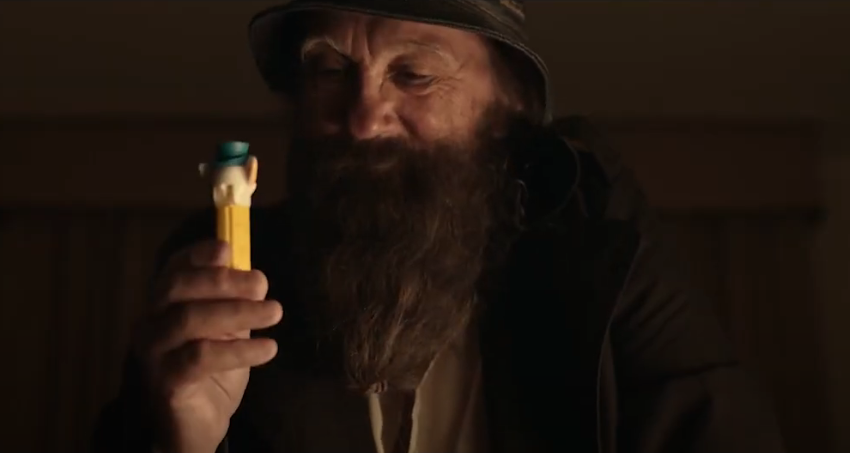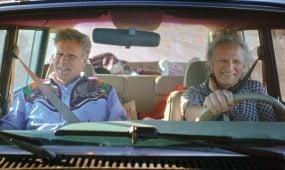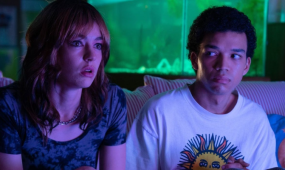The Pez Outlaw
Films & TV
“There’s enough substance in The Pez Outlaw to recommend readers add it to their Netflix watchlist if they’re after something a little more nutritious in their candy-coated documentary filmmaking,” says anglican focus journalist Ben Rogers

You’ve probably seen Pez dispensers at some point in your life while walking a supermarket lolly aisle or browsing the small plastic toys in a candy shop. They even entered the pantheon of iconic pop culture toys thanks to a Seinfeld cameo in the early nineties, simply titled “The Pez Dispenser”. They’re the little rectangular devices with a toy head (often a familiar face like Batman or Bugs Bunny) on the top that flips back so a small candy piece is released. They’re cheap (most of the time, but prices vary as we soon learn in the documentary) and a bit of frivolous fun for children wanting a unique way to store and carry their lollies.
The new documentary The Pez Outlaw — now streaming on Netflix — has the kind of shine and pop to its visuals, pacing and overall tone that you’d expect if you’re covering the bright and sunny world of toys and candy. It clearly belongs to that world of “quirky” documentaries that are made with a professional polish and mild ambitions — a perfect dose of nostalgia and intrigue for Netflix audiences who lapped up The Toys That Made Us and The Movies That Made Us.
But credit where credit’s due, producer and director duo Amy Bandlien Storkel and Bryan Storkel approach the story as both a David vs Goliath corporate struggle and a Euro-spy thriller, giving the underlying subject matter meaning and significance beyond what could have been restricted to online Pez collector forums.
It never really probes deeply into matters of importation law or trademark violations that are inevitably raised when you have someone engaged in the kind of (let’s charitably call it) “dubious” corporate conduct on display here, but clearly the emphasis is keeping the narrative momentum going for 85 minutes and it’s compulsively entertaining stuff.
Advertisement
The scenes of dramatic recreations are shot with plenty of panache, mimicking the kind of aesthetics you might see in a European spy movie, a Tom Clancy-adapted thriller or a Willy Wonka-type kids movie — these frequent detours into highly stylised cinematic setpieces give just the right fizz to liven up the parade of standard talking heads interviews from die-hard collectors and former Pez executives.
One aspect of the film that does get reasonable attention given it’s a fairly important piece of context to explain the titular character’s motivations and behaviours is that of mental health. You won’t get searing insight into mental health complexities in Steve Glew’s (aka, the “Pez Outlaw”) story, but it’s an important reminder about how mental health challenges impact both the individual and the community and how they may impact the trajectory of people’s lives for both better and worse, as seen here.
Glew found the frustrations of a dull 9-to-5 factory job in Michigan too much to bear and saw collecting toys and cereal boxes as an outlet for his struggles with depression, bi-polar disorder and obsessive compulsive disorder (OCD). The OCD component of obsessively collecting cereal boxes (the guy has a whole basement filled with them) transformed itself into an eventual side-hustle business going to toy fairs and selling giveaway toys that were redeemable from cereal box coupons. It was there that Glew was introduced to Pez dispensers, soon diving head-first into collecting and travelling to Europe on the hunt for rare dispensers he could sell for big bucks back in the States.
Advertisement
Dodging importation laws designed to keep out European imports, Glew peddled rare and prototype Pez dispensers to eager American collectors and grew a small fortune before catching the ire of Pez America’s corporate bigwigs.
The money kept flowing, but so did the threats to Glew’s business model as Pez America took cautious steps to stamp out his dealing. As the tensions escalated between Glew and Pez, so did the stakes for Glew who risked his entire family fortune on creating his own line of Pez dispensers in the battle to outsmart Pez America.
Throughout the documentary you cannot ignore the complexities of Glew’s mental health struggles when he reels off numerous globe-trotting tales of wheeling-and-dealing or his bitter feud with the head of Pez’s American outfit, Scott McWhinnie. To what degree did mental health challenges spur on Glew’s all-or-nothing battle with Pez America? How much of what we’re being told is true and how much has been inflated to provide a sense of grandiose purpose to a man who yearned for a life bigger than his own? The filmmakers
have the canny sense to demythologise some elements of Glew’s story while leaving enough open to question and let audiences work out how the complexities of Glew’s persona may be impacting the reliability of what’s on screen.
Regardless of whether Glew was being chased by corporate spies around Europe like something out of a John le Carré novel, it’s clear that his struggles and triumphs profoundly impacted his loyal family who all candidly recount their experiences living with Glew, including how his depression and OCD were embedded within their family life.
The film is at its strongest and most authentic when it deals with this material around mental health and its impact on the family unit, and if it wasn’t for the inclusion of these interviews in the overall tapestry of the documentary, The Pez Outlaw would’ve been little more than a minor disposable pleasure. But as it stands, There’s enough substance in The Pez Outlaw to recommend readers add it to their Netflix watchlist if they’re after something a little more nutritious in their candy-coated documentary filmmaking.
The Pez Outlaw, rated PG, and directed by Amy Bandlien Storkel and Bryan Storkel, is currently streaming on Netflix.





